Playlist:
Foster Magpie Lane 3:21
Hail Chime On patrons of the Black Bull Pub, Ecclesfield 2:36
Hail Chime On Kate Rusby 4:12
Last Sunday I was at a Christmas carol singing party. My friend Kerry and her offspring host singalong parties every month, and have done so for many years. They are always favourite events on my (purposely limited) social calendar. But the December ones are especially special: Kerry, Rebekkah and Briar go all out with Christmas treats (including stuff for the vegans and celiacs) and spiced apple juice.
As always, we sang without accompaniment from Kerry’s unindexed, home-compiled Christmas songbooks. They are a marvelous collection of Christmas songs in various styles and languages (some of which she has gotten over the years from my annual Samplers.) We all just thumb through them and anyone can call out a selection and tell the page number. Then we sing; some doing melody and others improvising harmonies (Rebekkah often contributes beautiful descants.) I called for a couple including It Came Upon a Midnight Clear, and because I chose it we did it to my favourite melody for that common meter song – Ghost Riders In the Sky. (The chorus is: Hallelujah! Hallelujah! A host of angels in the sky.)
When While Shepherds Watched came up we all knew what version we would sing because we do it the same way every year. Officially the tune is called Cranbrook but everybody thinks of it as On Ilkley Moor Bah’t At. That reminded me – I haven’t given you very many (by my standards) samples of While Shepherds Watched yet this year. Today I’ll fix that with three versions, two of which have an added chorus and the same melody.
You’re welcome!
I got Foster, the tune-name for this version of While Shepherds Watched Their Flocks by Night, from Magpie Lane’s 2008 album Knock at the Knocker, Ring at the Bell. Magpie Lane has been recording English folk music now for over 30 years (with some changes in membership.) Their band name comes from an old street with a notorious past in their hometown of Oxford, England. Like many British folk bands all of their members are fine singers as well as fine musicians. That enables them to sprinkle harmonized acapella songs like this along with the lively dance tunes in their sets.
Here is what they say about this song in their online sleeve-notes:
An area famous for its carols is South Yorkshire. In villages around Sheffield, rather than singing in the streets, the carol-singers have found a home in pubs – pubs such as the Black Bull at Ecclesfield, the Blue Ball at Worrall, and the Travellers Rest at Oughtibridge. In some of these pubs the singing is unaccompanied; in some it may be accompanied by a piano or an electronic organ. The songs sung include present-day favourites such as O Come All Ye Faithful, some secular pieces, and an incredible variety of pieces originating in the “West Gallery” church bands of the eighteenth and early nineteenth centuries.
At any of the pub carol-singing sessions you will hear at least one setting of While Shepherds Watched – in some you may hear the words sung to half a dozen different tunes during the course of the evening. The verses . . . were actually written by Nahum Tate (1652-1715), poet laureate to William of Orange. In part the ubiquity of the words, not just in South Yorkshire but across the country, must be due to the fact that they were included after the metrical Psalms in the Book of Common Prayer.
Our setting is based on a recording made by Ian Russell at the Fountain, Ingbirchworth in the 1970s, . . It is referred to locally as Foster or Old Foster, a reference to its composer John Foster of High Green, Yorkshire (1762-1822). The music was published just a couple of years before Foster’s death, originally as a setting for the 47th Psalm; however it has long been associated in the area with Tate’s carol words.

This version of Hail Chime On (1), a popular South Yorkshire variant of While Shepherds Watched, is from a 1983 BBC recording made after the folklorist Prof. Ian Russell brought that local custom to England’s national attention. (He had made earlier field recordings of it as research for his PhD dissertation in folklore studies.) As far as I can tell, he was the first person to recognize that local traditions of choral singing could be just as much a legitimate part of our folk music heritage as fiddle tunes, seas shanties and old ballads.
Ian supervised the BBC’s field recording project and released recordings made at several pubs near Sheffield on a series of audio cassettes called Village Carols. I got this track from one of those cassettes, that I borrowed from one of our choral and folk leaders out here on the west coast of Canada, Denis Donnelly. (Thank you, Denis!)
In Prof. Russell’s liner notes for the cassette he says:
Christmas carolling at Ecclesfield in South Yorkshire is a revelation. It represents one of the finest living examples of the village tradition of carol singing in the United Kingdom. There are no conductors, no music scores, no rehearsals, no accompaniment, just villagers and enthusiasts coming together to voice their celebration of Christmas, as their forebears had done for generations before. Theirs is essentially an oral tradition; learning tunes, parts, and words by listening and joining in alongside other carollers. A great deal of learning has to take place, for most of their repertoire is not the standard fare, but a much older, more local, exciting type of song.
In the nineteenth century, official church musicians and hymnbook compilers did their utmost to reform church music, to take the enjoyment from singing and replace it with pious Victorian conformity. As part of this movement, our Christmas carols were emasculated and stereotyped. This cultural ‘clean up’ worked in the towns, but many villagers reacted against it and kept their local carolling alive in their homes and pubs.
The singing at the Black Bull is renowned, not merely within the district but across the country, as a result of radio and television appearances. It is to their credit that the singers and their carolling remain refreshingly unspoilt and genuine. The recordings presented here are taken in sequence from a single evening’s singing. To villagers, exiles, ‘comers, and enthusiasts, the Christmas message from the Black Bull is here to be shared.
That was written in 1983. Since that time village carolling has grown and expanded (although song sheets are now commonly used.) There is even a national organization promoting the return of this old tradition and singing the styles of Christmas music from before the Victorian “clean up.” Here is a relatively recent Guardian article about the continuing and strengthening of the tradition around Sheffield, and here is one from just last year, but there are still threats.

Hail Chime On (2) The folksinger and singer-songwriter Kate Rusby grew up in South Yorkshire, in the village of Penistone about 12 miles from Sheffield. She came from a family of musicians and her childhood was as a participant in the pub-singing tradition discussed above. She sat in the corner of crowded pubs as a young girl, singing along with everybody else.
Today she is one of England’s most famous folksingers, and a large part of her success has been by bringing the music of that region’s Christmas pub-singing to the general British public. The music critic for The Guardian wrote: “Kate Rusby remains Britain’s most popular female folk singer because she has mastered the art of Christmas songs.” She has just released her seventh Christmas album and they have all been big hits. (Mariah Carey has only two.)
Because she is best known to the general public as a folksinger and singer-songwriter her Christmas albums include new songs that she has written, but their main fare are the traditional Christmas songs of South Yorkshire sung in a more contemporary style. This is obviously such a song. It is from her first Christmas album, Sweet Bells, released in 2008.



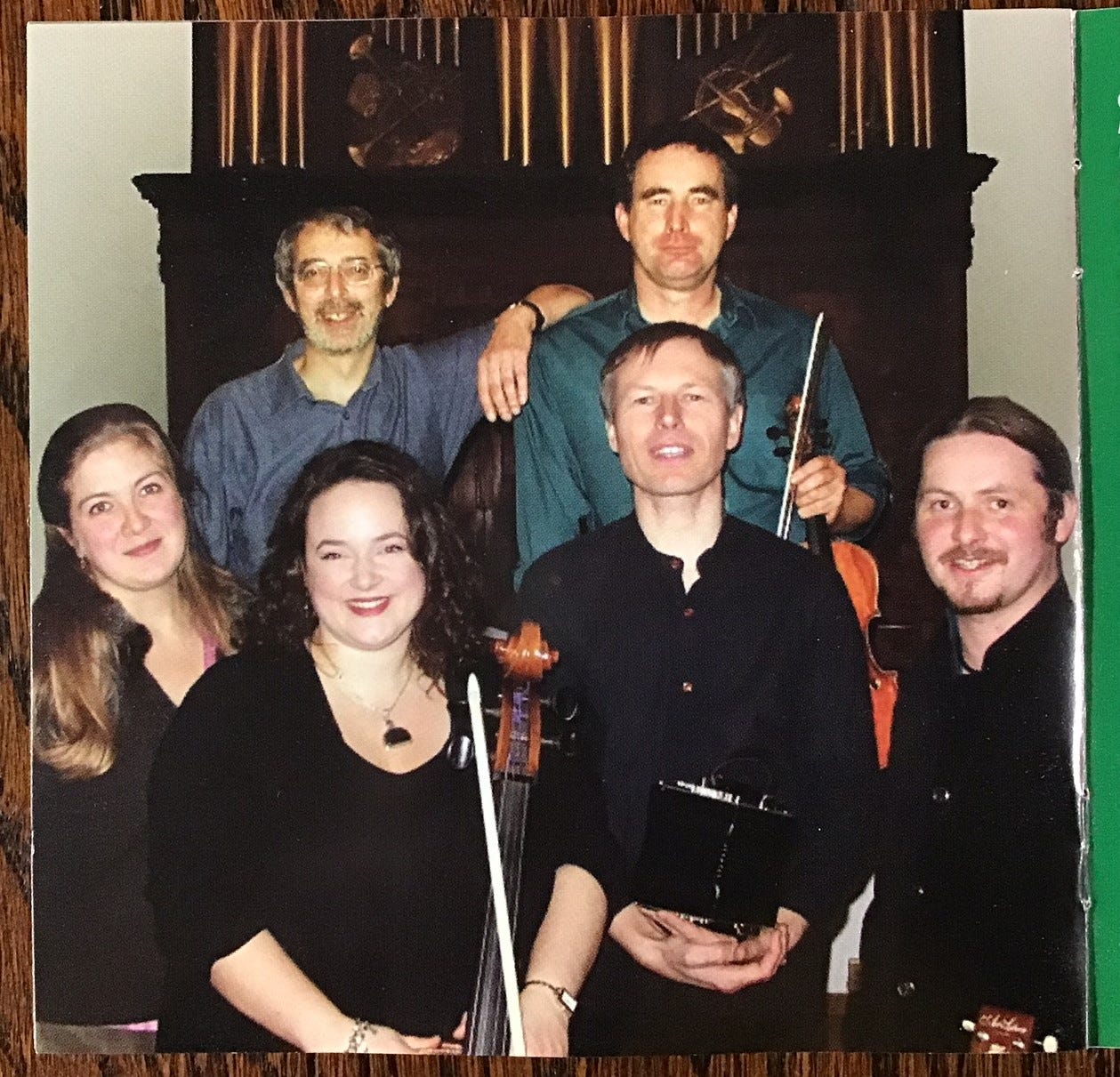


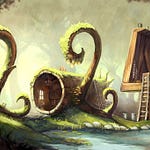


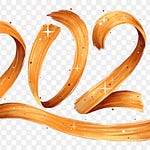

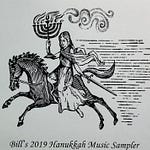
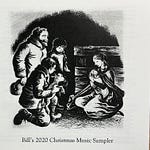

Share this post